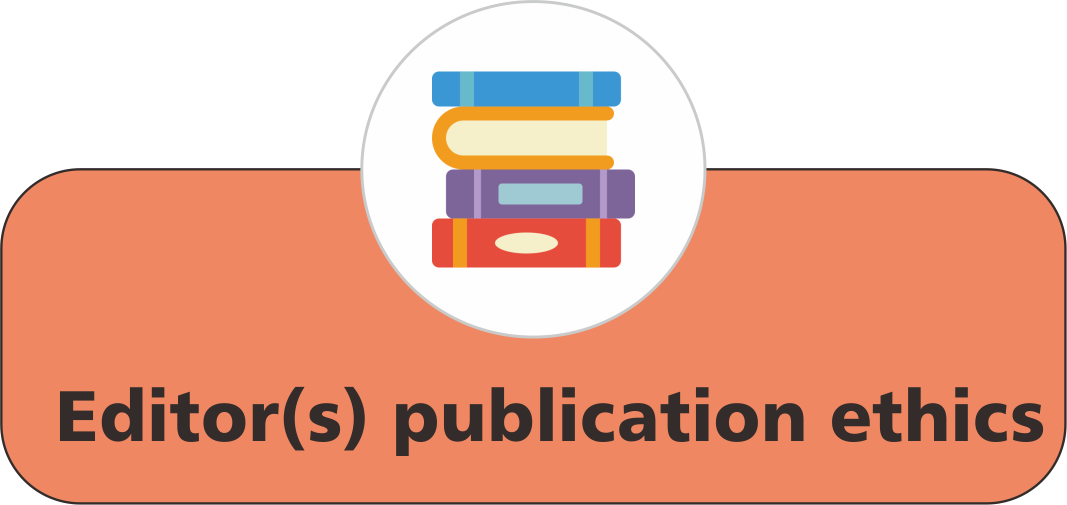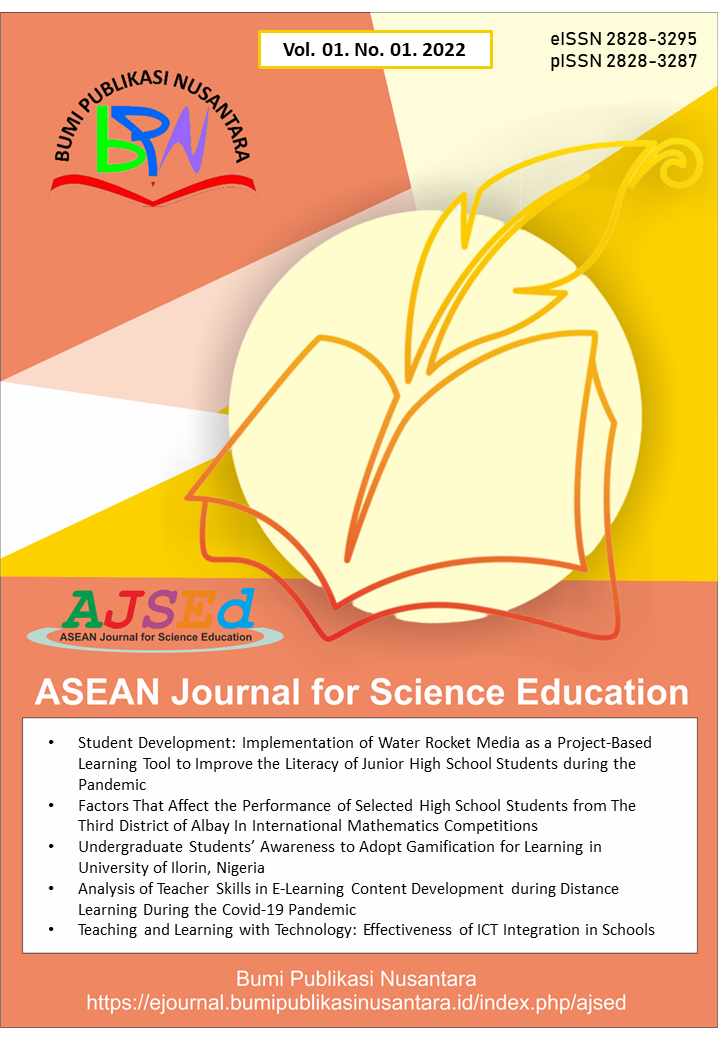Examining Climate Change Issues for Improving Cross-Generation Awareness in 21st Century Agenda: A Bibliometric Approach
 ), Karim Suryadi(2), Cecep Darmawan(3), Siti Nurbayani(4),
), Karim Suryadi(2), Cecep Darmawan(3), Siti Nurbayani(4),
(1) Universitas Pendidikan Indonesia
(2) Universitas Pendidikan Indonesia
(3) Universitas Pendidikan Indonesia
(4) Universitas Pendidikan Indonesia
 Corresponding Author
Corresponding Author
Abstract
Keywords
References
Adjovu, G. E., Stephen, H., James, D., and Ahmad, S. (2023). Overview of the application of remote sensing in effective monitoring of water quality parameters. Remote Sensing, 15(7), 1938.
Al Mamun, A., Hayat, N., Mohiuddin, M., Salameh, A. A., Ali, M. H., and Zainol, N. R. (2022). Modelling the significance of value-belief-norm theory in predicting workplace energy conservation behaviour. Frontiers in Energy Research, 10, 940595.
Al‐Ghussain, L. (2019). Global warming: Review on driving forces and mitigation. Environmental Progress & Sustainable Energy, 38(1), 13-21.
Almassi, B. (2017). Climate change and the need for intergenerational reparative justice. Journal of Agricultural and Environmental Ethics, 30(2), 199–212.
Balbus, J. M., Boxall, A. B., Fenske, R. A., McKone, T. E., and Zeise, L. (2013). Implications of global climate change for the assessment and management of human health risks of chemicals in the natural environment. Environmental Toxicology and Chemistry, 32(1), 62-78.
Banholzer, S., Kossin, J., and S. Donner, S. (2014). The impact of climate change on natural disasters. Reducing Disaster: Early Warning Systems for Climate Change, 3(2), 21–49.
Barnes, C. M., Esterle, L., and Brown, J. N. A. (2019). When you believe in things that you don’t understand’: the effect of cross-generational habits on self-improving system integration. IEEE 4th International Workshops on Foundations and Applications of Self Systems (FASW), 2019, 28–31.
Brownlee, M. T. J., Powell, R. B., and Hallo, J. C. (2013). A review of the foundational processes that influence beliefs in climate change: Opportunities for environmental education research. Environmental Education Research, 19(1), 1–20.
Capstick, S., Whitmarsh, L., Poortinga, W., Pidgeon, N., and Upham, P. (2015). International trends in public perceptions of climate change over the past quarter century. Wiley Interdisciplinary Reviews: Climate Change, 6(1), 35-61.
Cottrell, C. (2022). Avoiding a new era in biopiracy: Including indigenous and local knowledge in nature-based solutions to climate change. Environmental Science & Policy, 135, 162-168.
Cramer, W. (2018). Climate change and interconnected risks to sustainable development in the Mediterranean. Nature Climate Change, 8(11), 972–980.
Degroot, D. (2021). Towards a rigorous understanding of societal responses to climate change. Nature, 591(7851), 539-550.
Diprose, K., Liu,C., Valentine, G., Vanderbeck, R. M., and McQuaid. (2019). Caring for the future: climate change and intergenerational responsibility in China and the UK. Geoforum, 105(2), 158–167.
Donelson, J. M., Salinas, S., Munday, P. L., and Shama, L. N. (2018). Transgenerational plasticity and climate change experiments: where do we go from here?. Global Change Biology, 24(1), 13-34.
Fenitra, R. M., Premananto, G. C., Sedera, R. M. H., Abbas, A., and Laila, N. (2022). Environmentally responsible behavior and knowledge-belief-norm in the tourism context: The moderating role of types of destinations. International Journal of Geoheritage and Parks, 10(2), 273-288.
Ghil, M., and Lucarini, V. (2020). The physics of climate variability and climate change. Reviews of Modern Physics, 92(3), 035002.
Maibach, E. W., Kreslake, J. M., Roser-Renouf, C., Rosenthal, S., Feinberg, G., and Leiserowitz, A. A. (2015). Do Americans understand that global warming is harmful to human health? Evidence from a national survey. Annals of Global Health, 81(3), 396-409.
Malhi, Y., Franklin, J., Seddon, N., Solan, M., Turner, M. G., Field, C. B., and Knowlton, N. (2020). Climate change and ecosystems: threats, opportunities and solutions. Philosophical Transactions of the Royal Society B, 375(1794), 20190104.
Matos, S., Viardot, E., Sovacool, B. K., Geels, F. W., and Xiong, Y. (2022). Innovation and climate change: A review and introduction to the special issue. Technovation, 117, 102612.
Messaoud, S., Bradai, A., Bukhari, S. H. R., Quang, P. T. A., Ahmed, O. B., and Atri, M. (2020). A survey on machine learning in Internet of Things: Algorithms, strategies, and applications. Internet of Things, 12, 100314.
Skeirytė, A., Krikštolaitis, R., and Liobikienė, G. (2022). The differences of climate change perception, responsibility and climate-friendly behavior among generations and the main determinants of youth's climate-friendly actions in the EU. Journal of environmental management, 323, 116277.
Torres, C., Moranta, J., and. Murray, I. (2022). The construction of a growth-oriented global climate agenda: a critical historical analysis. Investig. Geográficas, 77(1), 161.
Van Beek, L., Hajer, M., Pelzer, P., van Vuuren, D., and Cassen, C. (2020). Anticipating futures through models: the rise of integrated assessment modelling in the climate science-policy interface since 1970. Global Environmental Change, 65, 102191.
Weiskopf, S. R., Rubenstein, M. A., Crozier, L. G., Gaichas, S., Griffis, R., Halofsky, J. E., and Whyte, K. P. (2020). Climate change effects on biodiversity, ecosystems, ecosystem services, and natural resource management in the United States. Science of the Total Environment, 733, 137782.
Wong, S. L., Mong, G. R., Nyakuma, B. B., Ngadi, N., Wong, K. Y., Hernández, M. M., and Chong, C. T. (2022). Upcycling of plastic waste to carbon nanomaterials: a bibliometric analysis (2000–2019). Clean Technologies and Environmental Policy, 24(3), 739-759.
Yoro, K.O., and Daramola, M.O. (2020). CO2 emission sources, greenhouse gases, and the global warming effect. Advances in Carbon Capture, 20(1), 3–28.
Article Metrics
Abstract View : 728 times
: 728 times Download : 325 times
Download : 325 times
Refbacks
- There are currently no refbacks.
Copyright (c) 2024 Bumi Publikasi Nusantara

This work is licensed under a Creative Commons Attribution-ShareAlike 4.0 International License.







